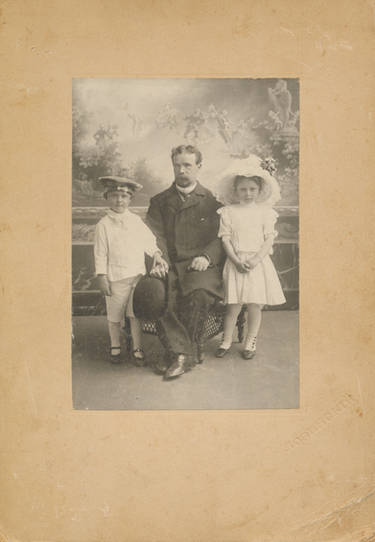Deviation Actions
Literature Text
To retain at least a little bit of normalcy, Didi kept reading magazines and spent occasional times brushing her dark hair and even talking to Todor. Even though he couldn't quite hear what the girl was saying to him, they understood each other, and they even had crushes on each other. Sometimes Didi wondered why she was sent here. But it was fine because on September 27, her mom would be coming to pick her up, at long last. For a long time, Didi had gone around telling everyone that her mom would be coming to get her, and she was very excited and anticipating her homecoming.
Finally the awaited day came. Calmly, Didi packed her bags and smiled and sat in a chair and started to rock like everyone else around her. The other kids just moaned and shouted, slapping themselves and banging their heads, oblivious to Didi's excitement. Then she remembered: Without words and with a simple waving of his hand, Milen had told her that he'd heard the staff talking and the mom would NOT be coming, ever, but Didi wouldn't believe him. In the back of her mind, though, she feared that he might be right, but she shook it off. The time for Didi to get picked up come and went. Though the worries and the sad truth were starting to get to her, she assumed maybe there's something to make mom late, and so she waited some more. But then it hit her. 'Мама не идва тук.' Didi hung her head in despair. Milen was right.
What happened to Didi and the children mentioned here? Did they ever get out of Mogilino, and what were the details of their lives there? Click the links in the description to find out.
A LITTLE NOTE TO PEOPLE WHO LIVE IN BULGARIA WHO MIGHT READ THIS: If you happen to know any of these children/teenagers/young adults or are/know their friends or carers, please let me know because I'd like to know if they are happy and getting the good care they need. For those who don't speak English or prefer not to here's a translation (warning, its with Google Translate so its gonna be bad): Ако знаете някой от тези деца / тийнейджъри / млади възрастни или са / знаят своите приятели или болногледачите, моля да ме уведомите, защото бих искал да знам дали те са щастливи и получаване на грижите добре те се нуждаят.
"The Social Care Home - where 75 unwanted children are growing up - is the main employer in the small village of Mogilino. Few of the children can talk, not necessarily because they are unable but rather because no one has ever taught them how.
Kate meets the children in this tragic, silent world, such as Milan, the gentle giant who spends his days doing chores and watching over the others, and mildly autistic 18-year-old Didi, who is able to talk, and has plenty to say, but no one to speak to. The children that surround them suffer a variety of problems, many are blind or deaf and some are unable to leave their beds, many are literally wasting away.
Abandoned into the hands of the staff at Mogilino these children inhabit a bleak uncaring world, so devoid of normal everyday stimulus that many have taken to rocking slowly and constantly in their chairs just for something to do.
Bulgaria has more institutionalised mentally and physically disabled children than anywhere else in Europe. This film is a heart-rending and eye-opening look into the life of one such institution."
„Изоставените деца на България“ (на английски: Bulgaria's Abandoned Children) е документален филм на Би Би Си, излъчен по четвърти канал на 13 септември 2007 г. с режисьор журналистката Кейт Блюет. В продължение на час и двадесет минути филмът представя няколко месеца от живота на деца с умствени и физически увреждания в дома „Св. Петка“ в село Могилино, Община Две могили. Описан е от една страна като „90 минути неподправен ужас“, свидетелство за „абсолютната изолация от целия останал свят на децата в Могилино“,, а от друга - като "подвеждане", "некоректно представяне" и "много умела манипулация на британската обществена телевизия".
In September 2007, the 90-minute documentary "Bulgaria's Abandoned Children" aired on BBC4 and when it did, it sparked an international outcry because people were so horrified and shocked that such severe neglect was happening in a country that had recently become a member of the European Union. It was directed by documentary filmmaker Kate Blewett, who, along with Brian Woods, has also directed other documentaries focusing on social issues and/or human rights abuses worldwide, such as "The Dying Rooms" (1995), "Ukraine's Forgotten Children" (2012), and "Innocents Lost" (1998). Here is a link to the film about the Bulgarian institution. WARNING: It is very heartbreaking and can be hard to watch at times. It contains footage of emaciated children starved of all nutrition and care, mentions of physical and possibly even sexual abuse, and tragic/extreme levels of neglect being inflicted on special needs kids who clearly weren't getting ANY of their needs met in that place.
youtu.be/UQZ-ERQczj8
Luckily, the Mogilino home was shut down in 2009, and the children moved to better, smaller, family style homes across Bulgaria.


















